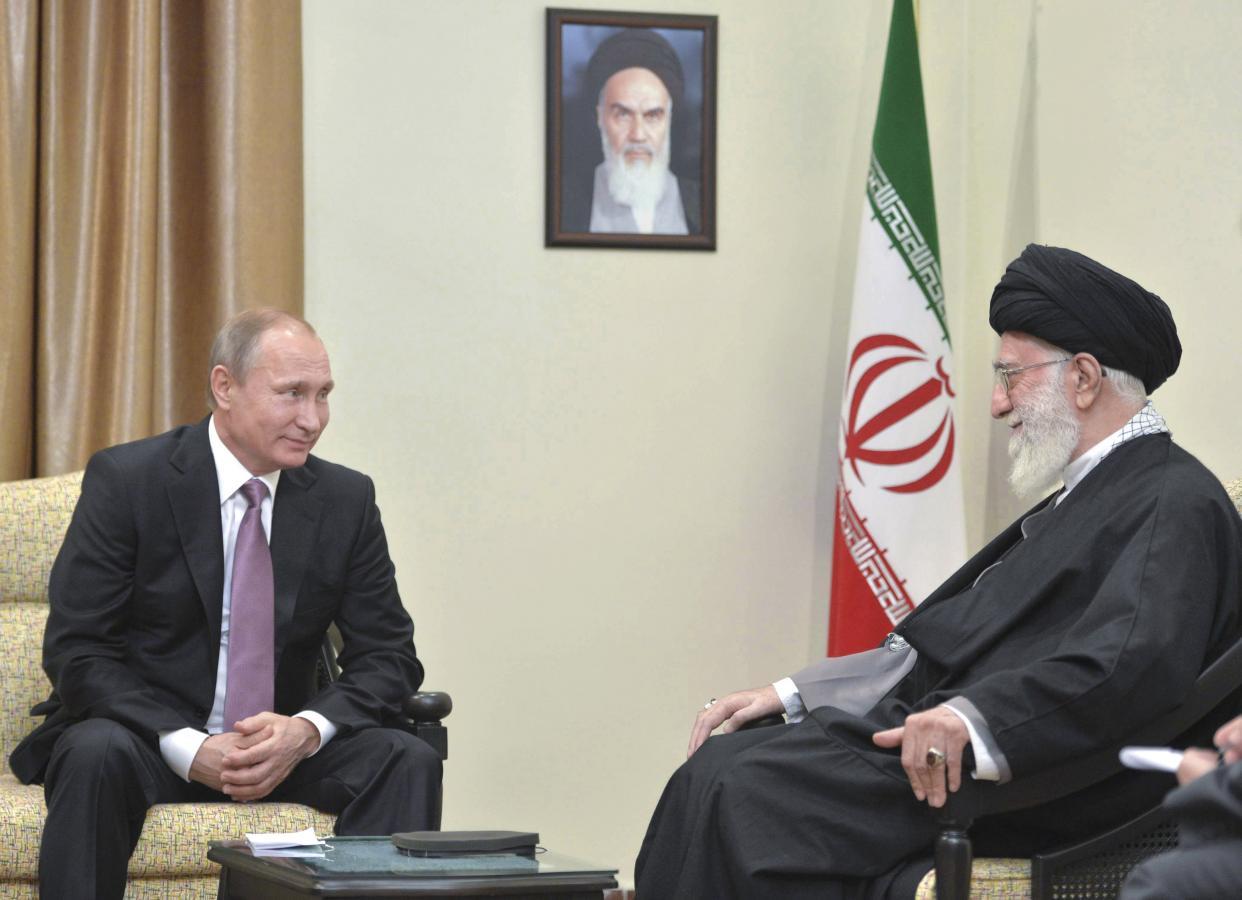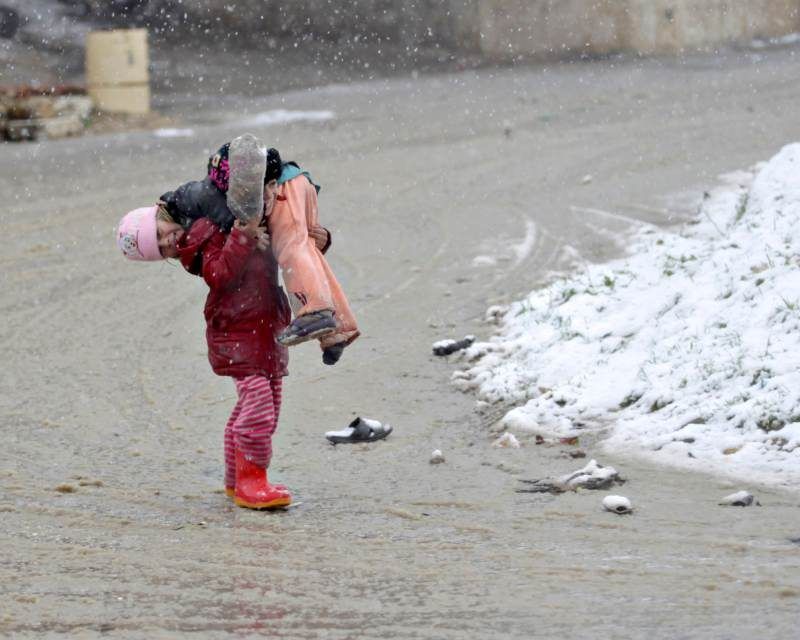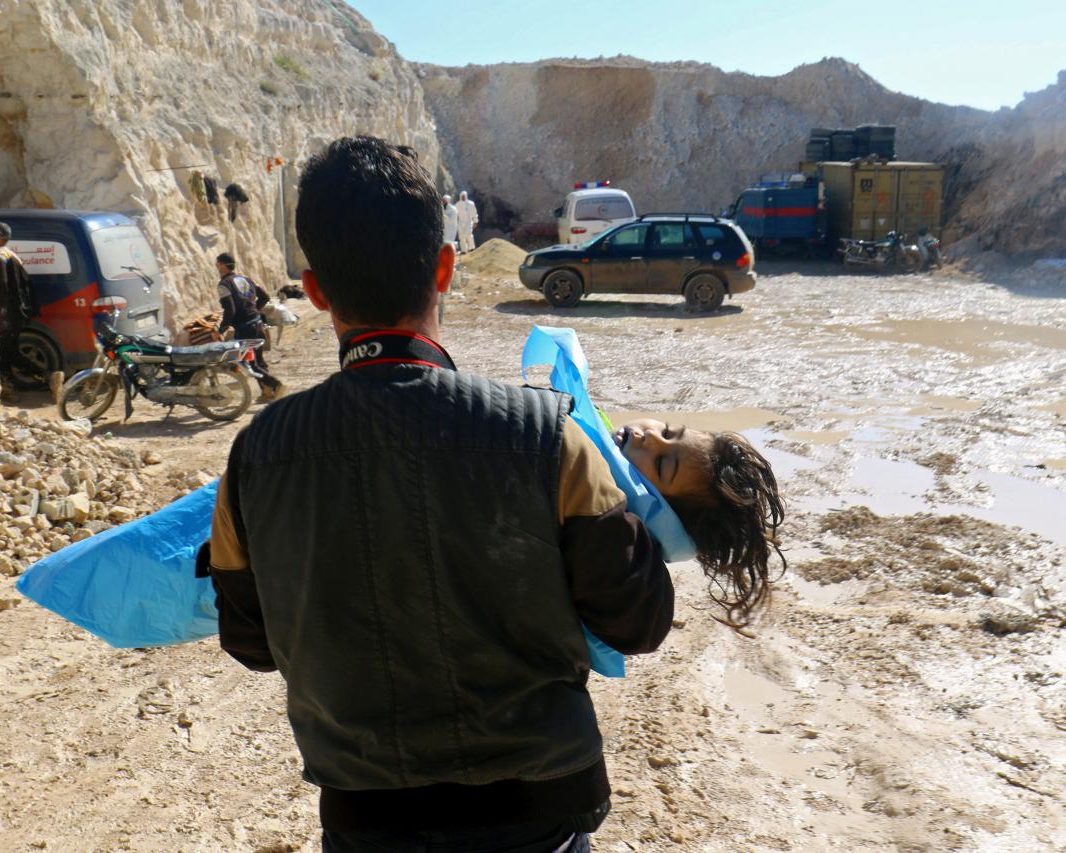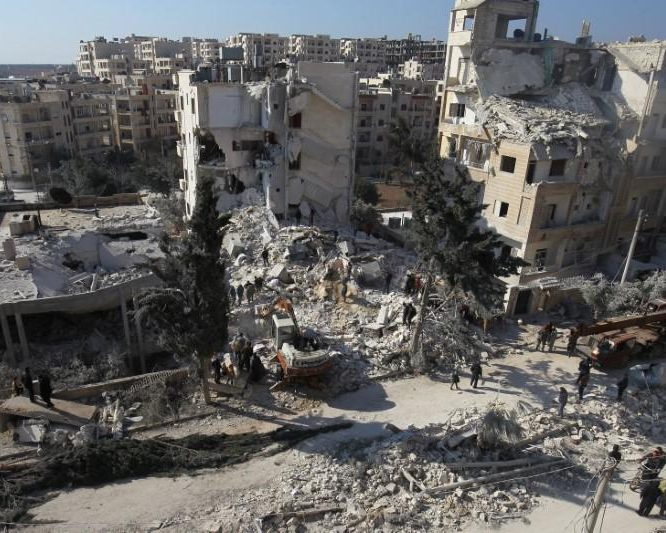By Denis Pinchuk
TEHRAN, Sept 7 (Reuters) – The presidents of Turkey, Iran and Russia on Friday failed to agree on a ceasefire that would forestall a Syrian government offensive in the rebel-held Idlib province which the United Nations fears could cause a humanitarian catastrophe involving tens of thousands of civilians.
Turkey’s Tayyip Erdogan, Russia’s Vladimir Putin and Iran’s Hassan Rouhani, meeting in Tehran for a summit of key foreign players in Syria’s war, agreed in a final statement that there could be no military solution to the conflict and it could only end through a negotiated political process.
But as Syrian government and Russian warplanes mounted air strikes in Idlib on Friday morning in a possible prelude to a full-scale offensive, Putin and Rouhani pushed back against Erdogan’s call for a truce.
[aesop_image img=”https://kayhanlife.com/wp-content/uploads/2018/09/2018-09-07T153814Z_89817412_RC130CC54D00_RTRMADP_3_MIDEAST-CRISIS-SYRIA.jpg” panorama=”off” align=”center” lightbox=”on” caption=”Turkish President Tayyip Erdogan speaks during a news conference with President Hassan Rouhani of Iran and Vladimir Putin of Russia following their meeting in Tehran, Iran September 7, 2018. Cem Oksuz/Turkish Presidential Palace/Handout via REUTERS ” captionposition=”left” revealfx=”off” overlay_revealfx=”off”]
The Turkish leader said he feared a massacre and Turkey could not accommodate any more refugees flooding over its border.
Putin said a ceasefire would be pointless as it would not involve Islamist militant groups it deems terrorists. Rouhani said Syria must regain control over all its territory.
Idlib is the insurgents’ only remaining major stronghold and a government offensive could be the war’s last decisive battle.
[aesop_image img=”https://kayhanlife.com/wp-content/uploads/2018/09/2018-01-18T134739Z_1082458693_RC11CEC281F0_RTRMADP_3_MIDEAST-CRISIS-SYRIA-CAMP.jpg” panorama=”off” align=”center” lightbox=”on” caption=”Displaced Syrian children look out from their tents at Kelbit refugee camp, near the Syrian-Turkish border, in Idlib province, Syria January 17, 2018. REUTERS/Osman Orsal ” captionposition=”left” revealfx=”off” overlay_revealfx=”off”]
Tehran and Moscow have helped Assad turn the course of the war against an array of opponents ranging from Western-backed rebels to the Islamist militants, while Turkey is a leading opposition supporter and has troops in the country.
Their discussions in Tehran mark a crucial point in a seven-year-old war which has killed more than half a million people and forced 11 million to flee their homes.
Erdogan, in his opening remarks, said a ceasefire in Idlib would be a victory for their summit.
Putin responded: “The fact is that there are no representatives of the armed opposition here around this table. And more still, there are no representatives of Jabhat al-Nusra or ISIS or the Syrian army.
“I think in general the Turkish president is right. It would be good,” he said. “But I can’t speak for them, and even more so can’t talk for terrorists from Jabhat al-Nusra or ISIS that they will stop shooting or stop using drones with bombs.”
In a series of tweets following the summit, Erdogan said resorting to methods that would disregard civilian lives would “play into the hands of terrorists.”
“If the world turns a blind eye to the killing of tens of thousands of innocent people to further the regime’s interests, we will neither watch from the sidelines nor participate in such a game,” he said.

Iranian Supreme Leader Ayatollah Ali Khamenei said in a meeting with Putin on Friday that Iran and Russia can work together to restrain America, according his official website.
“One of the issues that the two sides can cooperate on is restraining America,” Khamenei said. “Because America is a danger for humanity and there is a possibility to restrain them.
“The Americans have faced a real defeat in Syria and have not reached their goals,” he added.
In the final statement, the three agreed on the need to eliminate the Islamic State, the Nusra Front and other groups linked to al Qaeda and designated as terrorists. But there were other armed opposition groups that could join any ceasefire agreement, they said.
The communique also called on the United Nations and the international community to step up humanitarian aid to Syria and help in restoring basic infrastructure assets.
Efforts must be made to protect and to create conditions for the safe return of refugees, it added.
“HORRIFIC, BLOODY BATTLE”
Iran’s Rouhani said the battle in Syria would continue until rebels were pushed out of the whole country, especially in Idlib, but he added that any military operations should avoid hurting civilians.
“The fight against terrorism in Idlib is an indispensable part of the mission to return peace and stability to Syria, but this fight should not harm civilians and lead to a ‘scorched-earth’ policy,” Rouhani said.
Erdogan said Turkey no longer had the capacity to take in any more refugees from Syria should the government offensive in Idlib go ahead. Turkey has accepted 3.5 million refugees from Syria since the start of the war in 2011.
“Whatever reason there is an attack that has been made or will be made will result in disaster, massacre and humanitarian drama,” he said. “Millions will be coming to Turkey’s borders because they have nowhere to go. Turkey has filled its capacity to host refugees.”
[aesop_image img=”https://kayhanlife.com/wp-content/uploads/2018/09/2018-09-07T140550Z_501228537_RC165FBECFE0_RTRMADP_3_MIDEAST-CRISIS-SYRIA.jpg” panorama=”off” align=”center” lightbox=”on” caption=”President Hassan Rouhani of Iran, Tayyip Erdogan of Turkey and Vladimir Putin of Russia arrive for a news conference following their meeting in Tehran, Iran September 7, 2018. Kirill Kudryavtsev/Pool via REUTERS” captionposition=”left” revealfx=”off” overlay_revealfx=”off”]
The Assad government was not directly represented at the summit, nor were the United States and other Western powers.
The United States came in for criticism from all sides, however, highlighting the complex nature of a conflict involving a myriad of factions.
Rouhani said the United States should end its presence in Syria, while Erdogan said Turkey was “extremely annoyed” by Washington’s support for the Syrian Kurdish YPG militia, which Ankara considers as terrorists linked to Kurdish separatists in Turkey.
Widely abhorred internationality for the brutal conduct of the war, Assad has largely reclaimed most of Syrian territory though much of it is ravaged. Although the West has long said he must stand down or be removed, that looks unlikely at this point.
Meanwhile, the fate of Idlib hung in the balance.
The United Nations Security Council met to discuss Idlib on Friday at the request of the United States, and U.N. Syria mediator Staffan de Mistura said there were “all the ingredients for a perfect storm.”
“The dangers are profound that any battle for Idlib could be, would be a horrific and bloody battle,” de Mistura said.
(Reporting by Reuters reporters in Tehran, Moscow, Istanbul, Ankara, Geneva, Beirut and the United Nations, Writing by Angus MacSwan Editing by Leslie Adler)




